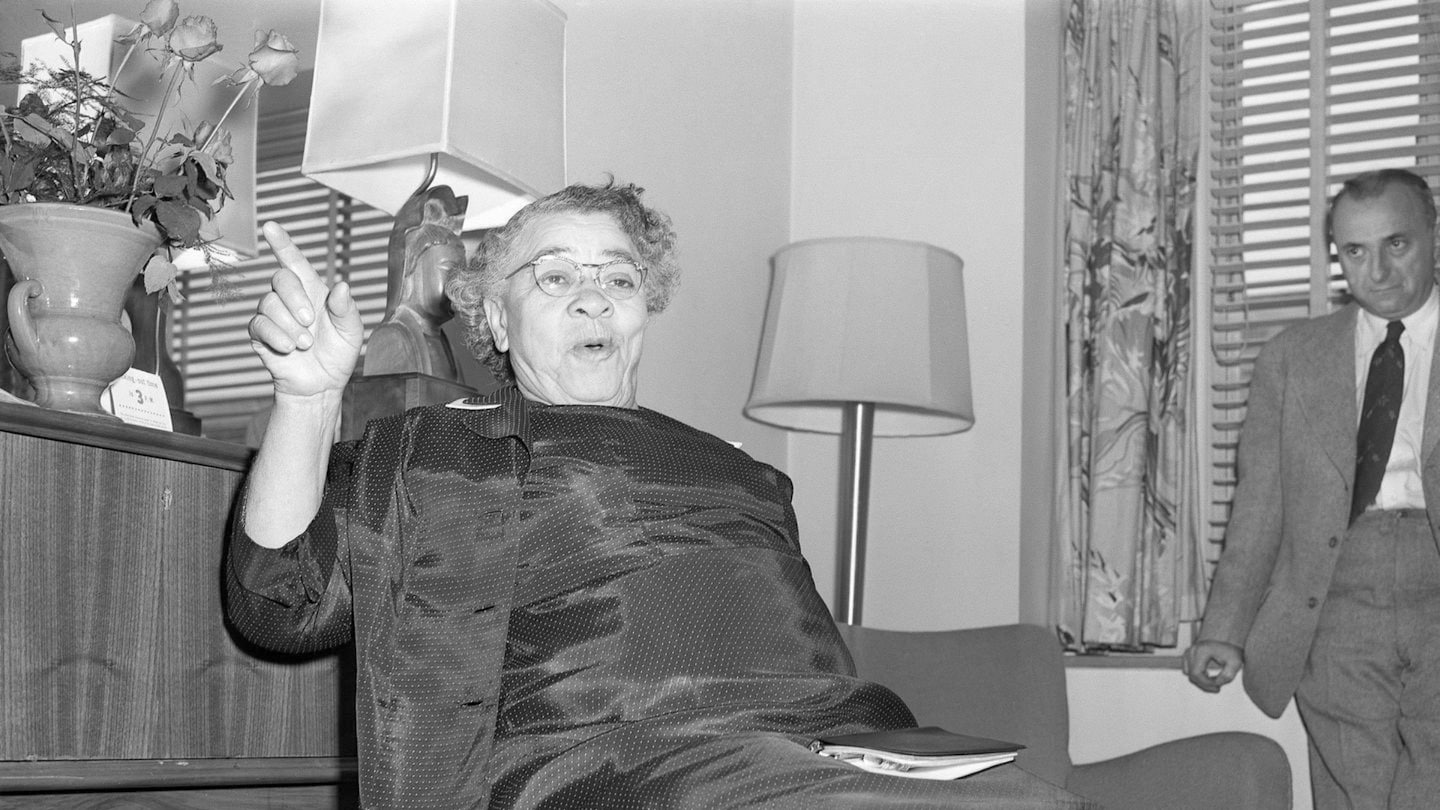Kamala Harris isn’t the first Black woman to run for VP. Meet Charlotta Bass.

Indeed, while Harris will be the first Black woman and the first Asian American to appear on a major-party ticket, she is not the first Black woman to run for vice president. That title belongs to Bass, who joined a long-shot Progressive Party ticket in 1952, more than a decade before the Voting Rights Act was signed into law.
Martha Jones, a historian at Johns Hopkins University, said Bass is one of several key figures who paved the way for Harris and many other contenders for Biden’s vice-presidential pick. As a Los Angeles civic leader and the publisher of a major Black newspaper, Bass chronicled and commented on politics before entering the fray herself.
“I don’t think you can understand how we got here in 2020 if you don’t appreciate the way in which Black women have built this moment,” Jones told The Washington Post. “Kamala Harris doesn’t just drop from the sky. She’s a political figure whose career is very much linked to a history.”
Bass’s chapter in that narrative starts in 1910, when she moved from her native South Carolina to Los Angeles and started working at the California Eagle, according to Denise Lynn, a historian at the University of Southern Indiana. Bass and her husband became joint publishers of the influential Black weekly paper, though she took over fully following his death in 1934.
In the Eagle’s pages, she criticized the Ku Klux Klan, denounced the Hollywood production of “The Birth of a Nation,” and endorsed female candidates in local races. Women had already won the vote in California by 1911, but Bass kept thousands of readers informed on the national women’s suffrage movement.
Bass’s commentary created change, too. Her pieces on employment discrimination resulted in the first Black hires at a major hospital and several big telephone companies, she said in her biography. She later got involved with the Los Angeles chapter of the NAACP and Marcus Garvey’s Universal Negro Improvement Association, as well as local and state politics.
After serving as a delegate to the California Republican convention, she switched to the Democratic Party and, finally, denounced both major parties entirely. Both had neglected Black and women’s rights, she wrote in an editorial, by trying to prove their commitment to fighting communism in the era of Republican Sen. Joseph R. McCarthy’s Red Scare.
Around this time, Bass’s friendly ties with some Black figures suspected of communism caught the attention of the FBI. Federal agents interrogated Bass at her office, kept tabs on each issue of the Eagle, and attended her public speeches to send reports back to Washington. At one point, her passport was confiscated.
It was enough to radicalize her fully into politics. “This is a moment in which Bass can no longer be, if you will, merely a journalist,” Jones said. “She has nowhere left to hide.”
She sold the Eagle in 1951 and co-founded the Sojourners for Truth and Justice, a short-lived Black women’s group named after the abolitionist and suffragist, and rallied and lobbied politicians in Washington.
Less than a year later, Bass joined San Francisco lawyer Vincent Hallinan in his underdog campaign for the White House. Hallinan, who had been convicted of contempt of court, announced his presidential bid a day before he was set to enter prison, leaving Bass to do most of the in-person campaigning.
As McCarthyism led to close scrutiny of the left, the Progressive Party was not expecting to win, said Erik McDuffie, an associate professor at the University of Illinois. But that wasn’t the point.
“To be publicly associated with them was, depending on your politics, incredibly courageous or a foolhardy move,” he told The Post. “During such a politically repressive moment, it speaks to her dedication to Black freedom and dignity for Black women.”
Hallinan and Bass mustered 140,000 votes, netting the third-highest total in a race that Dwight D. Eisenhower won in a landslide. Their best showing was in New York, where they won just under 0.1% of the vote.
Yet Jones, the Johns Hopkins professor, said Bass’s legacy is far more consequential than those results may seem. Together with figures like Fannie Lou Hamer and Shirley Chisholm, who ran for president in 1972, Bass helped usher the idea of a Black female candidate fully into the political mainstream.
Besides Harris, other contenders for Biden’s vice-presidential pick — such as Susan E. Rice, Stacey Abrams and Rep. Val Demings (D-Fla.) — have also benefited from that legacy.
“To my mind, it makes Kamala Harris all the more admirable in her accomplishments, because they are so hard-won,” Jones said. “Charlotta Bass is not a detractor. To the contrary, it shows how far we have come.”
Besides, the connections between the two women are more than just symbolic.
Four decades after that failed long-shot presidential bid, Vincent Hallinan’s son Terence won a narrow race for San Francisco district attorney. The younger Hallinan took after his father’s left-wing politics, declaring himself America’s most progressive prosecutor and hiring a slew of non-White officials to his office.
But he only lasted two terms. In 2003, he was ousted by his former deputy, a young lawyer from Oakland who had grown disenchanted with her boss and had her sights set on politics.
That lawyer’s name? Kamala Harris.






